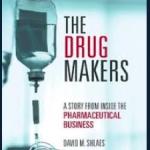Human physiology is complex, involving many chemical, cellular, and neuronal mediators. As a result of the multiplicity of interactions, there are continuous, tiny fluctuations, whether we measure chemical or electrical biomarkers.
Disease
Former Senator Kay Hagan of North Carolina died yesterday at the age of 66 from complications caused by an infection with the Powassan virus. What is that?
“I used to think that the brain was the most wonderful organ in my body. Then I realized who was telling me this.”
Emo Philips, American Comedian
Perhaps you remember the apocryphal story of how Target targets expectant mothers by me
Influenza, “the flu,” is more than a bad cold. Seasonal outbreaks yearly cause not only tremendous misery and debility but huge numbers of hospital admissions and deaths.
As a vascular surgeon, while having cared for many frail individuals, I was first exposed to the concept of frailty as a syndrome in 2011. Frailty requires special handling, like a prized antique.
This past April I reported that Vaxart, a small San Francisco vaccine biotech, was ready to start dosing volunteers with its experimental vaccine against norovirus, aka, the stomach flu, in Phase Ib studies (See
This is not the MRSA pandemic, ladies and gentlemen. Let's take a look at the MRSA pandemic. In US hospitals, even today (latest CDC data is from 2014), 46% of S.
Evidence-based medicine, it seems commonsensical; who could argue about using the best evidence available to make treatment decisions?












